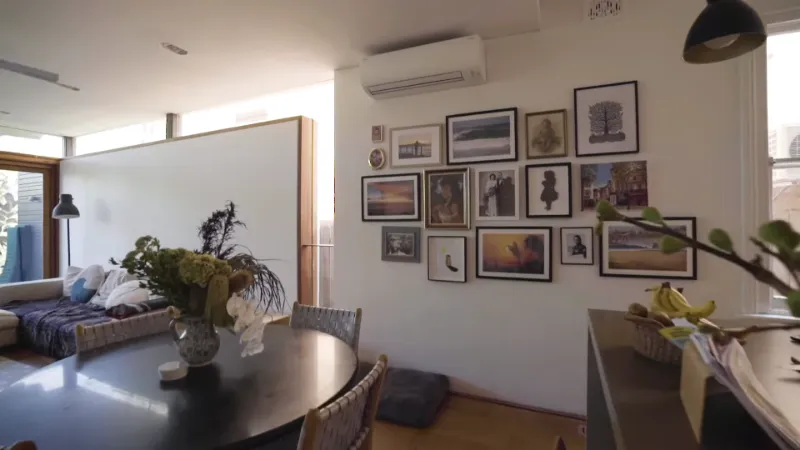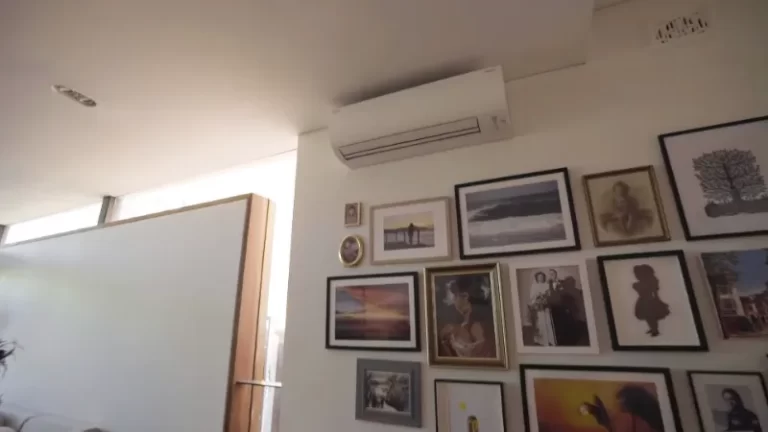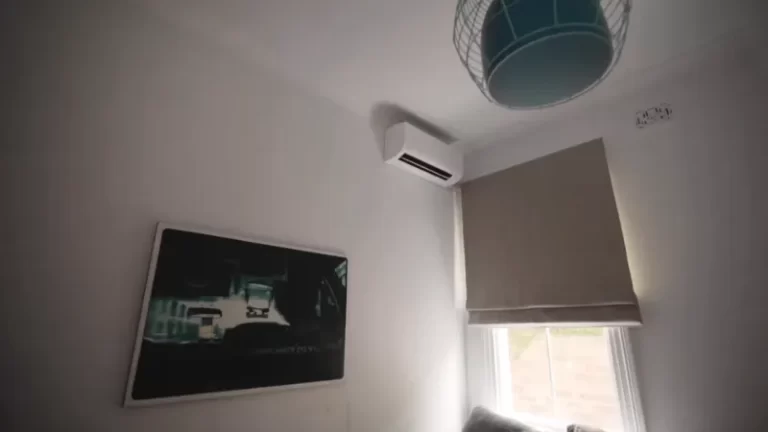Should I Turn My Air Conditioner Off While on Vacation? Factors to Consider
As the vacation season approaches, many homeowners face the dilemma of whether to turn off or leave on their air conditioning system while they are away. The decision is not always straightforward and requires consideration of several factors such as the length of the vacation, weather conditions, and the efficiency of the air conditioning system.
While turning off the AC may seem like a cost-saving measure, it could lead to other problems. On the other hand, leaving the AC on may also have its drawbacks. This article will examine these factors and provide insights to help you make an informed decision about whether to turn off or leave on your air conditioner while on vacation.
You'll Learn About
Managing Your Central a/c While Away: Tips for Short and Long Vacations
Deciding whether to turn your air conditioner off or leave it on while you’re on vacation can be a bit of a dilemma. On the one hand, you want to save energy and money, but on the other hand, you want to ensure that your home is cool and comfortable when you return.
The answer depends on the length of your vacation, the weather, the efficiency of your air conditioning system, and the need to protect other parts of your home from heat and humidity.
If you’re only going to be away for a day or two, it’s better to keep the air conditioner on, but set at a higher temperature than you would normally use while you’re at home. This will help save energy and prevent your home from becoming excessively hot and humid.
On the other hand, if you’re going to be away for a week or more, you may want to consider turning off the air conditioner to save energy and money. However, if you live in a hot and humid climate, turning off the air conditioner completely could cause other parts of your home, such as your furniture, floors, and walls, to become damaged by excess heat and humidity.
In this case, it’s better to set your air conditioner to a higher temperature, such as 85 or 90 degrees Fahrenheit, to keep your home cool enough to prevent damage while also saving energy. You can also use a programmable thermostat to begin cooling your home a day or two before your return, so that it’s comfortable when you arrive.
Overall, it’s best to consult with a professional HVAC technician to determine the best course of action for your specific air conditioning system and home environment. They can provide you with personalized recommendations and tips for managing your air conditioner while you’re away on vacation.

Factors to Consider
When deciding whether to turn off or leave on your air conditioner while on vacation, several factors should be taken into consideration.
Length of Vacation
Short vs Long For short vacations, it is generally better to keep the air conditioner on, but set at a higher temperature. This helps ensure that your home will be cool when you return. However, for longer vacations when no one will be using your home for a week or more at a time, you can save the most energy and cost by turning the system off.
In this case, you can use your programmable thermostat to begin to cool the home a day or so before your return.
Weather Conditions
The weather conditions in your area are also a crucial factor to consider when deciding whether to turn off or leave on your air conditioner while on vacation. If you live in a region with high humidity levels, it’s advisable to keep the air conditioner running to control the moisture level and prevent mold and mildew growth. Similarly, if the weather forecast indicates extreme heat or humidity, leaving the air conditioner on at a higher temperature can help prevent damage to your home’s interior or furnishings.
Efficiency of Air Conditioning System
The efficiency of your air conditioning system is also a key consideration when deciding whether to turn it off or leave it on while on vacation. Older or less efficient systems may not be able to handle extreme temperature changes and may be more prone to failure if left off for an extended period. In such cases, it may be better to keep the system running at a higher temperature to avoid any potential problems.
Protection of Other Parts of the Home
Turning off the air conditioning system for an extended period may result in other parts of your home being exposed to extreme temperature changes. This can lead to damage to your furniture, flooring, and other materials, and may also cause issues with your home’s plumbing or electrical systems.
The decision of whether to turn off or leave on your air conditioner while on vacation depends on several factors. For short vacations, it’s generally better to keep the system on at a higher temperature, while for longer vacations, it may be more cost-effective to turn the system off.
Considering factors such as weather conditions, efficiency of the system, and protection of other parts of your home can help you make an informed decision about what’s best for your situation. It’s also important to consult with a professional HVAC technician who can provide personalized advice and tips for managing your air conditioning system while you’re away.
Short Vacations
Short vacations, which typically last just a day or two, require a different approach when it comes to managing the air conditioner. In this case, it is better to keep the air conditioner on but set at a higher temperature to conserve energy and minimize the risk of damages to other parts of the home.
Cooling an empty house to the temperature you’d be comfortable at while home can be wasteful and unnecessary.
Increase the Temperature
Setting the thermostat for short vacations can vary depending on several factors, such as the efficiency of the air conditioning system and the weather conditions. However, the recommended setting for a short vacation is to increase the temperature by 4 to 5 degrees Fahrenheit.
For example, if you usually set the thermostat at 72 degrees Fahrenheit, increase it to 76 or 77 degrees. This is enough to reduce energy consumption and prevent your home from getting too hot, causing your air conditioning system to overwork when you return.
Programmable Thermostat
Another tip for setting the thermostat for short vacations is to use a programmable thermostat. This device allows you to set different temperatures for different times of the day. For instance, you can set the thermostat to increase the temperature by a few degrees during the day when no one is home and lower it in the evening when you return.
This can help save energy and reduce your utility bills.
It’s important to note that turning off the air conditioning system completely during short vacations is not recommended. Doing so can cause the temperature and humidity levels to rise too high, leading to potential damage to wood floors, furniture, and electronics. In addition, turning the air conditioning system off for short periods and then turning it back on can cause it to work harder, resulting in increased wear and tear on the system.
Long Vacations
Long vacations require a different approach when it comes to managing the air conditioning in your home. Unlike short vacations, where keeping the air conditioner on at a higher temperature is recommended, turning off the air conditioner completely during a long vacation is not the best option.
The reason for this is that turning off the air conditioner completely can cause damage to other parts of your home, such as furniture, walls, and flooring. Extreme heat and humidity can cause warping, cracking, and peeling of surfaces, which can result in costly repairs.
Set Your Air Conditioner to a Higher Temperature
To avoid damage to your home during long vacations, it’s recommended to set your air conditioner to a higher temperature, preferably between 78-82°F. This will help reduce energy consumption while still maintaining a comfortable temperature in your home. Additionally, you can use curtains or blinds to block out the sun during the day, which will reduce the amount of heat that enters your home.
Programmable Thermostats
Programmable thermostats can also be helpful in managing the temperature of your home while you’re away. These devices allow you to set different temperatures for different times of the day, so you can program your air conditioner to begin cooling the house a day or so before your return. This way, you can return to a comfortable and cool home without wasting energy and money on cooling an empty house.
Ensure Good Condition
It’s also important to ensure that your air conditioning system is in good condition before leaving for a long vacation. This includes changing the air filter, cleaning the condenser coils, and checking for any leaks or malfunctions. A well-maintained air conditioning system will be more efficient in cooling your home, which will help reduce energy consumption and costs.
Turning off the air conditioner completely during a long vacation can cause damage to your home, so it’s recommended to set the thermostat to a higher temperature instead. Using programmable thermostats can also help manage the temperature of your home and reduce energy consumption. Finally, ensuring that your air conditioning system is in good condition before leaving for a long vacation can help maximize efficiency and reduce costs.
Consultation With Hvac Technician
While the tips and guidelines mentioned above can be helpful in deciding whether to turn off or leave on the air conditioner during vacation, it is always advisable to consult an HVAC (heating, ventilation, and air conditioning) technician for personalized recommendations. An HVAC technician can provide professional advice based on the specific make and model of the air conditioning system, as well as the unique features and characteristics of the home.
Seeking professional advice can ensure that the air conditioner is managed in a way that is safe, efficient, and cost-effective. An HVAC technician can identify potential issues and risks that may arise from turning off or leaving on the air conditioner and provide solutions to mitigate them. For example, they can advise on how to protect the air conditioning system and other parts of the home from damage, as well as how to maintain indoor air quality while the system is not in use.
Additionally, a professional technician can offer tips on how to optimize the air conditioning system for energy efficiency and cost savings, such as by using programmable thermostats or upgrading to a more energy-efficient system. They can also provide recommendations on how to properly maintain and service the system to ensure its longevity and optimal performance.
while there are general guidelines for managing the air conditioner while on vacation, consulting with an HVAC technician can provide personalized advice and tips for ensuring the safety, efficiency, and cost-effectiveness of the system. A professional consultation can also offer valuable insights on optimizing the system for energy savings and maintenance. So, it is recommended to seek professional advice to make informed decisions about managing the air conditioner during vacation.
Guidelines for Managing Air Conditioner While on Vacation
| Vacation Length | Setting for Air Conditioner | Tips |
|---|---|---|
| Short | Keep air conditioner on, but at a higher temperature | Set thermostat to 85°F or higher; use ceiling fans to circulate air |
| Long | Turn up thermostat to 80°F or higher | Avoid turning off the air conditioner completely; use programmable thermostats to begin cooling home before return |
| All | Consult HVAC technician for personalized recommendations | Consider system efficiency, weather conditions, and home protection |
Note: These guidelines are general recommendations and may vary based on the specific air conditioning system and home. It is important to seek professional advice for optimal management of the air conditioner while on vacation.
Frequently Asked Questions
Is it a good idea to close the vents or registers in unoccupied rooms while on vacation?
Closing the vents or registers in unoccupied rooms may seem like a good idea to save energy, but it can actually cause problems with the air conditioning system. Closing too many vents or registers can increase pressure in the system, leading to reduced airflow and potential damage to the compressor. It is better to keep all vents and registers open and let the air circulate throughout the home.
Should I clean or replace the air filter before going on vacation?
It is always a good idea to clean or replace the air filter regularly, but it is particularly important before going on vacation. A dirty air filter can reduce airflow and cause the air conditioner to work harder than necessary, leading to potential breakdowns and higher energy bills. By cleaning or replacing the air filter before leaving, you can help ensure that the air conditioning system is working efficiently while you are away.
Can I use a smart thermostat to manage my air conditioner while on vacation?
Yes, a smart thermostat can be a helpful tool for managing the air conditioner while on vacation. Many smart thermostats have vacation or away settings that can be programmed to adjust the temperature and humidity levels while you are away.
Some smart thermostats can also detect when you are leaving or returning home and adjust the settings accordingly. Using a smart thermostat can help you save energy and ensure that your home is comfortable when you return from vacation.
How can I protect my air conditioner from power surges or outages while I am on vacation?
Power surges or outages can cause damage to the air conditioning system, particularly if they occur while you are away. To protect your air conditioner, you can install a surge protector or a backup generator.
A surge protector can help absorb the excess voltage of a power surge, while a backup generator can provide power to the air conditioner in the event of an outage. It is also a good idea to unplug any unnecessary appliances or electronics before leaving to reduce the risk of a power surge.
What should I do if I come home from vacation and find that my air conditioner is not working?
If you come home from vacation and find that your air conditioner is not working, the first step is to check the thermostat and make sure it is set correctly. If the thermostat is functioning properly, you may need to check the circuit breaker or fuse box to see if the air conditioner has tripped a circuit or blown a fuse.
If these steps do not solve the problem, it is best to call a professional HVAC technician to diagnose and repair the issue. Regular maintenance and inspections can help prevent unexpected breakdowns while you are away on vacation. Otherwise, dispose it to a good place.
Final Thoughts
Managing the air conditioner while on vacation requires careful consideration to ensure both comfort and efficiency. For short vacations, it’s recommended to keep the air conditioner on but at a higher temperature to avoid unnecessary cooling and energy waste.
On the other hand, for long vacations, turning off the air conditioner completely could cause damage to other parts of the home, but setting the thermostat to a higher temperature is still important to save energy.
Consultation with an HVAC technician can provide personalized recommendations and tips on managing the air conditioner while on vacation. Ultimately, balancing comfort and efficiency is crucial in making the decision to turn off or leave on the air conditioner while away.
By following these tips and factors to consider, homeowners can ensure that their home and air conditioning system remain in good condition while they enjoy their vacation.


